#Probation
Explore tagged Tumblr posts
Text
Welcome to Part 4 of How Does Court Work Anyway???
Previous parts (1: Investigations and why police are bad at them, 2: Bond, pretrial probation, and counsel at first appearance, and 3: preliminary hearings, the fuck is a grand jury, and trials) all available.
Welcome to Sentencing: who is a nolle prosecui, this math isn’t mathing, jail vs. prison, and The Stank.
And yes, I take questions, for the curious and for authors/etc. hit me up.
—
Here are some good ways a case can end.
If a jury (or a judge) finds you "not guilty" or "dismisses" the charge, you are free to go.
Here is a somewhat good way a case can end.
You are also free to go if the prosecution makes a motion for nolle prosecui that is granted. A nolle prosecui is the prosecutor saying, I want to drop the charges. Technically, a prosecutor has to have "good cause" for this motion; this is because a charge that has been NP'd can be brought back (with the defendant rearrested, going through the whole bond process again).
Prosecutors have, in fact, used this to get around deadlines for speedy trial. If they can't get their witnesses here for the trial date that's 4 ½ months in, they might just NP the case instead of risking losing it to a speedy trial deadline. Then, a few months later, when they have their witnesses, they bring it to another Grand Jury, indictment issued, defendant arrested – lo and behold, it's gonna be another four months waiting in jail before trial.
In some jurisdictions, prosecutors can get only a certain amount of tries before the case is dismissed "with prejudice." This means that it cannot be brought back. In my jurisdiction, there is no magic number. If the prosecutor can justify it ("it's not my fault, Your Honor, that the witness went on the run to North Carolina") then maybe they can bring it back over and over again. Doesn't stop them from asking each time to hold the defendant without bond, because they know how much of a strategic advantage it is for them.
How about if the jury, or the judge at a bench trial, found you guilty?
Now you go to a sentencing hearing. At a bench trial, in front of a judge, it might just happen right then: the judge knows the facts, now she takes a look at the criminal history of the defendant and the sentencing guidelines and makes a choice.
Wait, rewind. What are sentencing guidelines?
–
Let's have a little history lesson.
Before the 1980s, my jurisdiction had a parole system. This is the system you're used to seeing in movies, especially older movies: prisoners are sentenced to an obscene amount of time, but after a certain number of years they can go before a parole board and make a case as to why they should be released. This is Shawshank Redemption shit.
Parole boards have flaws. They are vulnerable to being manipulated in many ways; inmates have no counsel at parole hearings; parole boards are racist (of course, isn't everything); there was no consistency in the sentences people were serving; etc.
Because of this, the state decided to reform to abolish parole. Instead, it became probation-centric, under a Truth in Sentencing system. The name is ironic, as you'll come to find out. Instead of parole boards reviewing after a certain period of time, the judge would sentence the person both to their total possible sentence and to the amount they would serve right away. The difference between the two was suspended time.
Okay, I know that sounds like a lot of nonsense. Here's how it works in practice.
Jane commits a grand larceny. Jane has a record. Jane takes a plea for one year of active jail time. The plea agreement says: Jane is sentenced to 3 years of jail time, with 2 years suspended on condition of 2 years of supervised probation. What happens is 2 of the 3 years are "suspended" – hanging over her head, as the judges like to say – so if she messes up on supervised probation, those years can be imposed. Jane serves 1 year and then she is released. She then has 2 years of supervised probation. If she adheres to their strict and arbitrary rules, she never has to serve those other 2 years.
In the former parole based system, Jane might be sentenced to 3 years with parole available after 1 year.
Wait, you say, so it doesn't fucking matter what they do in jail? If they get rehabilitated?
Of course it does. Though nobody is getting rehabilitated. Good behavior in jail – defined as failing to get any serious incidents or new charges – gives people a certain percentage of time off. (Working for steeply discounted wages in for-profit jails and prisons can also do this! You can slave labor part of your sentence away! Love the personal empowerment!) Before 2020ish, around here, that percentage was ~15% (not quite but close enough; the way they calculate it, you're actually sentenced to 115% of the sentence you serve, which makes it closer to 14%, but whatever) on a felony, and 50% on a misdemeanor. Yes, misdemeanor time is half off. Now, those percentages have changed; violent crimes are at ~15%, the rest at ~35%, misdemeanors still at 50%.
So, now, under Truth-In-Sentencing, Jane is sentenced to 3y/2y suspended. She serves 1y – no, wait, 1y is changed to 7 months and 27 days. She serves 7m – no, hang on, she's working for cheap mopping the hallway at a private jail, so that's another 30 days off. She serves 6 months, 27 days, and she's out. Mission accomplished! Sentencing is so much clearer now!
This is hoodwinking magic. Politicians still want to be able to say that they are tough on crime, but they also don't want to pay for people to be in prison. So with all these little tricks of bookkeeping, "we sentenced people to years in prison" is true but "these people served a little more than half that time" is also true. This is stupid. It's an excuse not to confront the overwhelming damage of the justice system by hiding it in the numbers.
But, on the other hand, my jurisdiction's prison numbers have dropped in the last year and we're one of the only states in America that did, so.
–
So what are guidelines, because you never said.
Sentencing guidelines are recommended sentences for crimes with similar defendants, based on what those defendants have been sentenced to or what they served under the parole system.
In other words, it's a statistical summary of what People Like This have to do for Crimes Like That: it's a perpetuation of our system as it is, codified. Judges are required to fall between the low end (the 25th percentile) and the high end (the 75th percentile) or they have to find a specific reason why they deviated.
If a judge wants to be less harsh, then they need to justify it to the legislature later on.
There is no other scientific basis for the guidelines in my state. They have recently added things like risk levels, recidivism potential, and the potential of dropping the low end of the guidelines 2 years if the defendant shows "acceptance of responsibility."
What happens in a sentencing hearing?
Leading up to the hearing, the probation/parole agency completes a presentence investigation, and they call it something like "presentence investigation report" or "social history" or "risk assessment." This covers basic history of the defendant (filled in via questionnaire that was mailed to the defendant), adds in any victim impact statements, and mixes it all up with the police version of events. It also has a full copy of the defendant's record, which often erroneously contains juvenile charges that should have been expunged.
Based on this report, and the guidelines, the judge decides what to sentence.
Oh, you're allowed to call witnesses. Sometimes they even make a difference! A real triumph in a sentencing hearing is knowing that you swayed the judge, even a little.
There's also the potential of being sentenced by a jury, if you want. And I promise, you do not want.
What is the trial penalty?
I mentioned this last post, but let's dig in now.
People who go to trial and lose get bigger sentences than people who plead guilty. This used to be even more true than it is now. Why?
1) People who plead guilty have bargained for lower sentences. This is true.
2) People who go to trial essentially can't get the "acceptance of responsibility" change in their guidelines.
3) Judges get mad at people who clog up the dockets with "frivolous" trials.
4) How it used to be was that juries did the sentencing in jury trials. This was horrendous, for many reasons!
a - At first, attorneys were forbidden from even telling juries that parole had been abolished!
b - Once they were allowed to say that parole was abolished, they were not allowed to explain the system that had taken its place. That's because –
c - JURIES CANNOT SUSPEND JAIL TIME. Judges can! But juries cannot. So if the sentence range for a crime is 5-20 years, a judge can sentence someone to 5y with all 5y suspended – essentially, no active jail time. A jury's FLOOR for the same crime would be 5 active years.
d - Juries are not allowed to see the sentencing guidelines and are not allowed to know what an appropriate sentence for a similar crime would be.
Juries land above judges on sentence a truly significant part of the time (I think it tends to shake out that juries are harsher ⅔ to ¾ of the time). So, the way it used to be was that jury trials were a huge gamble – win big, or lose enormous. Now you can have judge sentencing with a jury trial. You still have the other couple problems with the trial penalty.
And anyone who opts for a trial is probably going to spend more time in jail awaiting their court date than someone who goes for a plea. That's just how scheduling works. Trials also require more preparation and work. There's no way to change that, I think.
–
Sentencing Ranges
In my jurisdiction, misdemeanors carry up to 1 year in jail (so, six months, at 50% – Truth In Sentencing!!) and felonies are crimes that carry any more than that. I hear that there are places where misdemeanors go to 2 years and places where misdemeanors don't go up to 1 year. Who truly fucking knows.
Felonies here also carry a range of classifications, from Class 6 (0-5 years in prison) to Class 1 (life).
Jail vs. Prison
Jail is sentences for misdemeanors or less than a year (around here). Jail is local, chaotic, and contains many people awaiting trial. Jail is also shit and the people in it are treated like shit. They are also shamelessly exploited on every level. Most jails now have tablets that inmates can have. This is not a luxury. It is so that they can charge inmates $1 for every picture they send and $.50 for every text message. Pure profit.
Prison is for sentences longer than a year. It ranges in classification, generally, from low security to high security to solitary confinement 23/24 hours. People in prison are often treated better than people in jail, fucking buck wild, I know, but my clients are usually pretty eager to get moved on to the Department of Corrections. In prison they can get better commissary, they have more stability, some places they can get radios and little tvs.
Why does jail/prison exist?
I don't imagine many of you actually asked this question, and maybe seeing it in black and white will bring it home that jail and prison actually don't have to exist. There was a time before jails and prisons, where people got whipped, maimed, humiliated, or killed for justice; prisons were supposed to be a more humane alternative.
Prisons, in theory, had four purposes.
1) Punishment. Prison does punish. Unfortunately, as dog and dolphin trainers figured out like a century ago, punishment doesn't actually get good results, and it has a lot of negative effects. It feels good, to the person doing the punishing. It feels satisfying. It is self-reinforcing, in that way. We expect that people change their behavior in response to punishment. They don't, really; they become more covert, they become more ashamed, and they do bad behaviors more, because they believe now that they are bad. Positive reinforcement of desired behaviors is shockingly effective to produce long-term change, and the positive reinforcement can be simple and small.
Yes, I'm telling you that it's time to let go of the idea of punishment, completely and wholeheartedly. There is no room for punishment in a society striving for improvement. It does not work. You may think I'm full of shit when I say this. Please just remember that it was said, and think about it every now and then. Think about the consequences people suffer for crimes that go above and beyond any kind of punishment. Think of a world where, instead of blaming a criminal for their behavior, we gather together and tell them: how did we fail you? Because there are places in this world that are like that.
But prison isn't just punishment. The idea is larger than that.
2) Rehabilitation – maybe you come out a better citizen? This does not happen in American prisons especially, because if you treat people worse than animals and tell them they deserve nothing, they start to believe you after a while. Programs are scarce and out of the ordinary. This, admittedly, is better even than it was eight years ago. And that was better than it was eight years before that. We used to send people to boot camp-style programs for Getting Straight (not in the sexual orientation way, but maybe also in the sexual orientation way). We did figure out that boot camps increased recidivism, not decreased. Oops.
3) Incapacitation. This is the only purpose of prison that is often achieved: while someone is in prison, they're generally not committing new crimes on the street. For an incredibly, incredibly small proportion of offenders – serial rapists, serial abusers, and serial killers – incapacitation can prove a godsend. Unfortunately, we as a society wildly overestimate the numbers of these people who will offend forever, and we pass laws that lock up people forever for shaky reasons. These draconian overreactions have gotten us policies like Three Strikes, which manage to lock people up for the rest of their life just about when they're statistically gonna stop offending, or laws that allow for the imposition of life sentences on crimes that previously didn't allow for it. Most recently, there is a new law in response to a murder committed by an undocumented immigrant who was out on bond. The solution, clearly, according to the legislature, is to make sure that no one undocumented can get bond ever again, whether they were convicted of a charge or just accused of one.
Yes, if an undocumented person is charged with any kind of crime, they can now be taken into ICE custody and disappeared before the chance to prove their innocence.
4) Deterrence. Two types of deterrence – specific (man I got sent to jail last time for this so I'm not doing it again) and general (people get sent to jail for this, I'm not doing it). It seems like this should work, but it doesn't, not really, or at least it doesn't to the amount that people think it does, or maybe it's based on the likelihood of being caught instead of the likelihood of high prison time. Or maybe it's just because people literally don't know what the normal penalty is for any given crime.
So prison doesn't stop people from doing the crime beforehand, even though it does stop people while they're in prison. It doesn't make people better. It does punish them, but punishment is creating a cycle of pain and deprivation felt far beyond individual inmates and far beyond their families. It destroys generations.
What is jail/prison like?
Boredom, frustration, and terror, I gather. It smells like the worst of high school BO plus old people plus cafeteria food with a strong overtone of bleach. It's gross.
They ignore medical issues until they're life-threatening. (Actual quote: "We're just here to keep you alive." Said, ironically, after three inmates died in three days in the local jail.) A psychiatrist visits by video once a month in the one I'm most familiar with; this is considered pretty progressive and innovative.
Many of them have eliminated in-person visitation in favor of video visitation. No, that doesn't mean you can do it on your phone from home. It means you drive to the jail and set up where there formerly was in-person visitation, and instead of your loved one sitting across the glass from you, a screen turns on and they're in their pod.
Jail charges people money per day to be there. It will come out of whatever cash they had on them when they were arrested, or it will be billed later. It was very controversial when our state passed some laws preventing this kind of debt from suspending someone's driver's license.
It isn't legal to jack it, because everywhere in a prison legally counts as a public place and public masturbation is a crime.
I don't know. I've never been in jail or prison. I just visit. Often. The smell lingers. What I see there just haunts me. There's no reason a guy locked in a room across from me has to have cuffs on in order to talk with me over the stupid little phone. There's no reason the guy I'm preparing a jury with has to be cuffed to the fucking wall while I'm at a table with him in person.
What haunts me the worst is when addicts look healthier and happier after weeks or months in prison. No one ever uses drugs except to escape something. What were they escaping that makes prison look like a sanctuary?
I know I've said this, but, again, it's the constant background noise. You become accustomed to holding a piece of paper steady so a man in handcuffs shackled to his waist can stand up far enough to sign it. You pull out the chair for him, because God knows while he's doing the penguin shuffle he can't do it himself. You carefully and deliberately make sure that your body language is open towards your client and closed towards the court, because the court needs to know that you aren't scared or grossed out or appalled by your client. You get good at telling him via gestures alone how he needs to dial his inmate number on the phone in order to connect to your side of the glass, because you've had to do it for eight years. You let their pain pass through you, because if you hold on to it, you won't have room for anything else.
idk y'all, I've kind of written myself out on this one. Join me next time for supervised probation and how it's destroyed black and poor neighborhoods, families, and culture.
#public defending#public defender#criminal justice#lawyering#how court really works#shackling#jail conditions#prison#probation#parole
79 notes
·
View notes
Text
z00s BURN IN HELLLLLLL🔥🔥🔥🔥🔥🔥🔥🔥🔥🔥🔥🔥🔥🔥🔥🔥🔥🔥🔥🔥🔥🔥🔥🔥🔥

🔥🔥🔥🔥🔥🔥🔥🔥🔥🔥🔥🔥🔥🔥🔥🔥🔥🔥🔥🔥🔥🔥🔥🔥🔥🔥🔥🔥🔥🔥🔥🔥🔥🔥🔥🔥🔥🔥🔥🔥🔥🔥🔥🔥🔥🔥🔥🔥🔥🔥🔥🔥🔥🔥🔥🔥🔥🔥🔥🔥🔥🔥🔥🔥🔥🔥🔥🔥🔥🔥🔥🔥🔥🔥🔥🔥🔥🔥🔥🔥🔥🔥🔥🔥🔥🔥🔥🔥🔥🔥🔥🔥🔥🔥🔥🔥🔥🔥🔥🔥🔥🔥🔥🔥🔥🔥🔥🔥🔥🔥🔥🔥🔥🔥🔥🔥🔥🔥🔥🔥🔥🔥🔥🔥🔥🔥🔥🔥🔥🔥🔥🔥🔥🔥🔥🔥🔥🔥🔥🔥🔥🔥🔥🔥🔥🔥🔥🔥🔥🔥🔥🔥🔥🔥🔥🔥🔥🔥🔥🔥🔥🔥🔥🔥🔥🔥🔥🔥🔥🔥🔥🔥🔥🔥🔥🔥🔥🔥🔥🔥🔥🔥🔥🔥🔥🔥🔥🔥🔥🔥🔥🔥🔥🔥🔥🔥🔥🔥🔥🔥🔥🔥🔥🔥🔥🔥🔥🔥🔥🔥🔥🔥🔥🔥🔥🔥🔥🔥🔥🔥🔥🔥🔥🔥🔥🔥🔥🔥🔥🔥🔥🔥🔥🔥🔥🔥🔥🔥🔥🔥🔥🔥🔥🔥🔥🔥🔥🔥🔥🔥🔥🔥🔥🔥🔥🔥🔥🔥🔥🔥🔥🔥🔥🔥🔥🔥🔥🔥🔥🔥🔥🔥🔥🔥🔥🔥🔥🔥🔥🔥🔥🔥🔥🔥🔥🔥🔥🔥🔥🔥🔥🔥🔥🔥🔥🔥🔥🔥🔥🔥🔥🔥🔥🔥🔥🔥
#beans cvt#homestuck#sh cvt#b3ansblr#st0n3r#fuck the cops#ima kms#probation#cvtspo#abandoned#anti zoophile#antizoo#tw zoophile mention#fuck zoophiles#anti contact zoophile#zoophillia#is#disgusting
44 notes
·
View notes
Text

Behbeh
#government#maga#great again#fired#laidoff#layoff#federal#usaid#probation#desk job#government efficiency#president musk#president elon#america#usa#cartoon#teddy bear#illustration#federal building#dailybehbeh#behbeh#cute#stuffed animal#art#funny#daily#daily bear#meme#comedy#2025
16 notes
·
View notes
Text
My friend's new parole officer is being a dick to him, harassing him probably illegally but there's literally nothing my friend can do about it because this man has the power to put him back in prison any time for any reason. I asked if it would help for me to be there when he comes over, not to say anything, just to be a civilian witness.
My friend says he'd be scared to put me in that position, where this guy could leverage threats against him to do something to me. He doesn't know this guy except that he apparently gets off on power trips and terrorizing people, and he's legitimately scared this guy would assault me if he had that sort of leverage.
That's how the parole system works, in case you didn't know. That's the power dynamic it creates.
12 notes
·
View notes
Text
Can I do a thought experiment? (Edit: its really more of a personal experiment for my own understanding of the general view of this kind of thing)
something beyond Milgram but that kind of pries into the mind of how we view proper punishment after something reprehensible? i’m just asking because I have to do it all the time, but maybe you’ll find it interesting, and maybe it’ll help me somewhat to understand the general consensus of whether a punishment is too broad or too narrow.
(TRIGGER WARNING FOR CSA.)
And obviously not one that like, tests if its okay to commit CSA. Just a question, as someone arguing on appeal in a prosecutorial position, to the public as to how you view the relative fairness of something punitive or where the baseline should be.
Facts (slightly altered from a true case): A sex offender, female, molests 2 of her 3 children, one biological and one stepchild, one girl and one boy, for several years. She pleads down to a lesser charge, receives five years of felony probation (I could talk for a long time about how lightly this is punished in law and why im confused about the prosecutor making this deal at all… But I won’t).
Among the various conditions of probation include a prohibition against internet usage. This is something i’ve seen before and successfully maintain mostly, but those cases are generally for child pornography. Among other things she asserts this is invalid.
She did not use the internet at all in committing the offense, she did not buy anything online to do it, she did not use social media or chatrooms or anything like that. It was all in person, with those two kids.
In this state, a probation condition will not be found invalid on appeal unless all three of the below elements are met:
1. The condition is not related to the crime committed.
2. The condition forbids conduct that is not itself criminal. (It is not illegal to use internet, use a phone, etc.)
3. The condition requires or forbids conduct that is not reasonably related to a defendant’s future criminality.
The third condition there is different from the first. It does not have to be a strict connection between the crime and the condition. However it does have to have a connection or relationship to the future criminality of a defendant, and cannot be based on mere hypotheticals.
So with this all in mind, to you,
5 notes
·
View notes
Text
im finally allowed to leave my dorm fuck yes
3 notes
·
View notes
Text
JOCELYN GECKER
Barnard, a women’s liberal arts college at Columbia, suspended more than 50 students who were arrested April 18 and evicted them from campus housing, according to interviews with students and reporting from the Columbia Spectator campus newspaper, which obtained internal campus documents.
On Friday, Barnard announced it had reached agreements restoring campus access to “nearly all” of them. A statement from the college did not specify the number but said all students who had their suspensions lifted have agreed to follow college rules and, in some cases, were put on probation.
On the night of the arrests, however, Barnard student Maryam Iqbal posted a screenshot on the social media platform X of a dean’s email telling her she could briefly return to her room with campus security before getting kicked out.
“You will have 15 minutes to gather what you might need,” the email read.
More than 100 Barnard and Columbia faculty staged a “Rally to Support Our Students” last week condemning the student arrests and demanding suspensions be lifted.
Columbia is still pushing to remove the tent encampment on the campus main lawn where graduation is set to be hosted May 15. The students have demanded the school cuts ties with Israel-linked companies and ensure amnesty for students and faculty arrested or disciplined in connection with the protests.
Talks with the student protesters are continuing, said Ben Chang, a Columbia spokesperson. “We have our demands; they have theirs,” he said.
For international students facing suspension, there is the added fear of losing their visas, said Radhika Sainath, an attorney with Palestine Legal, which helped a group of Columbia students file a federal civil rights complaint against the school Thursday. It accuses Columbia of not doing enough to address discrimination against Palestinian students.
“The level of punishment is not even just draconian, it feels like over-the-top callousness,” Sainath said.
16 notes
·
View notes
Text

Seaters, Devin Robert
Boise, ID
JID Number: 01131926 Age: 25 Arresting Agency: Boise County Sheriffs Office
Charge Count: 6
Register for notification on changes to inmate's custody status.
F Controlled Substance-Possession of Criminal Charge $5,000.00
M Controlled Substance-Possession of Criminal Charge Included
M Drug Paraphernalia-Use or Possess With Intent to Use Criminal Charge Included
M Driving Without Privileges Criminal Charge Included
Probation Violation - FE Return to Custody Not Bailable
Probation Violation - FE Return to Custody Not Bailable
This individual will not be released from custody due to a nonbailable charge(s)
Bail Total: $5,000.00

12 notes
·
View notes
Text
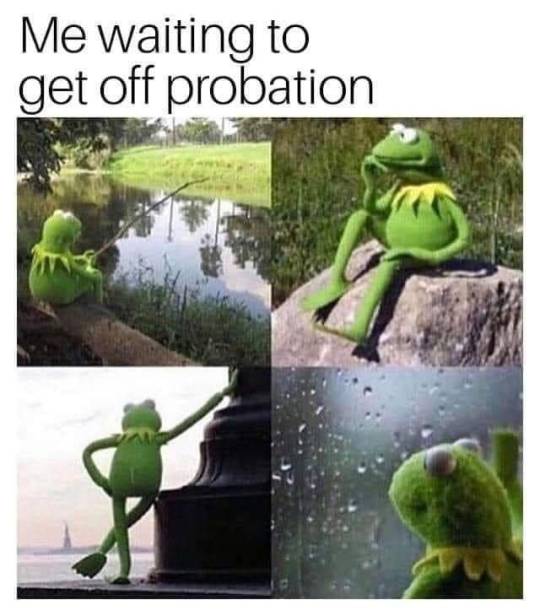
7 notes
·
View notes
Text
REAL fashion

fuck preppies
14 notes
·
View notes
Text
Bro I love coming back from vacations and it’s already a mess. If it was just us being short staff well It’s ok we can work with that.
But they are making my probation longer and i don’t think they have the right too??
It should have end in January/ February but never got a proper meeting about it. I got it today to tell me « oh we want to extended it for 3 extra months bc you had difficulties that were told to you back in January. » ok yeah that’s true i had a meeting about that yes and what i could improve. but never to tell me it will be extended. And I did improve. And they just told be me I did since then.
But we are in May now. That will make a total of a YEAR since I am here in 3 months!
Excuse me but how I am supposed to stay calm full of energy and positive when I feel things are against me and deliberately want to stress me out?! Excuse me I am confuse what the hell
#probation#work problems#is this normal? like yeah poor organization for sure but should I be worried I guess not#i did calm down since yesterday but wtf I am so confuse#vent#delete later
5 notes
·
View notes
Text
“Look at youth justice. In 2006, there were about 3,000 under-18s being held in custody in England and Wales; in 2022, there were 440, and the latest figures show the number of proven offences by young people is 65% lower than it was 10 years ago. In large part this is because of the work of youth offending teams, based in local authorities and working with police, probation, education, health, housing, children’s services and charities, to prevent offending and reoffending.”
6 notes
·
View notes
Link
From the June 5, 2024 interview with former New York City probation commissioner Martin Horn:
The purpose of [a probation report] is threefold: The primary purpose is to give the judge a complete understanding of the defendant so the judge can make a thoughtful and informed sentencing decision that’s appropriate to the crime and the criminal history of the defendant.
Secondly, to enable the court to make a judgment as to whether or not this particular defendant is — in our term of art — amenable to supervision. Are they going to accept the strictures of being on probation? There’s a set of rules, some of which are dictated by state regulation. And some of which are tailored specifically to each defendant.
Is this defendant likely to be willing to accept these rules and comply with them? Are they capable of it? Do they have the intellectual and mental capacity to understand the rules and to comply with them?
And the third is to identify any mitigating or aggravating circumstances that would justify leniency or a more harsh sentence. It’s an opportunity for the defendant to tell his or her side of the story and say, “Well, I did this, but you have to understand, I was an abused child,” or something like that. It’s an opportunity for the defendant to state their case for leniency.
7 notes
·
View notes
Text

"ONLY CASE CLEARED IN THREE MINUTES," Toronto Star. March 10, 1934. Page 3. --- Shoplifter Placed on Probation With Bond ---- Three minutes after women's court was officially opened the day's calendar was exhausted.
Lena Thornton, convicted one week ago of shop-lifting in department stores, was placed on probation for six months and ordered to sign a bond of $200 to keep away from the stores in question by Magistrate Patterson.
#toronto#women's police court#shoplifting#shoplifter#department stores#probation#peace bond#put on probation#great depression in canada#crime and punishment in canada#history of crime and punishment in canada
5 notes
·
View notes
Text
ᴛʜᴇ ʟᴇɢᴀʟ ᴊᴜꜱᴛɪᴄᴇ ꜱʏꜱᴛᴇᴍ.
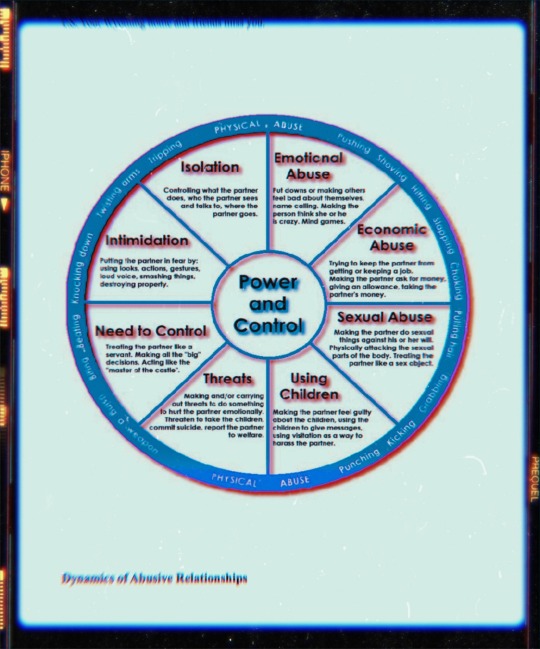
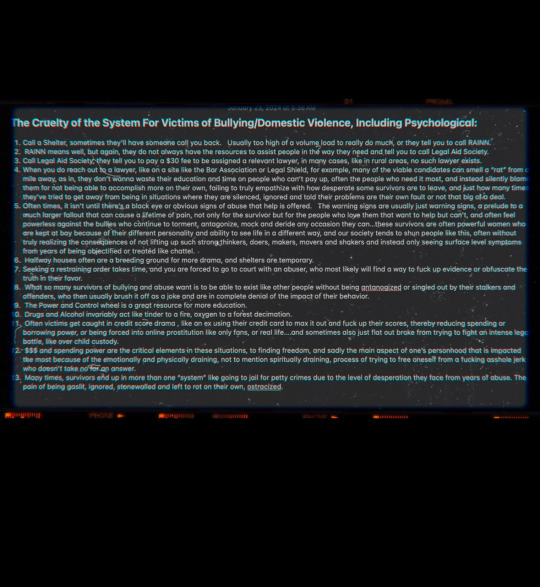
ᴅɪᴅ ᴀ ᴡʜᴏʟᴇ ᴅɪꜱᴄᴏᴠᴇʀʏ ᴘʀᴏᴄᴇꜱꜱ, ᴏɴʟʏ ᴛᴏ ʜᴀᴠᴇ ᴛᴏ ᴅᴇᴀʟ ᴡɪᴛʜ ᴀ ᴘꜱʏᴄʜᴏʟᴏɢɪᴄᴀʟʟʏ ᴀʙᴜꜱɪᴠᴇ ᴊᴇʀᴋ ᴡʜᴏ ᴜꜱᴇᴅ ᴍʏ ᴘᴀꜱᴛ ᴛʀᴀᴜᴍᴀ ᴀꜱ ᴀ ᴡᴀʏ ᴛᴏ ᴍᴏᴄᴋ ᴍᴇ ꜰᴏʀ ꜰɪᴠᴇ ʏᴇᴀʀꜱ ᴊᴜꜱᴛ ᴛᴏ ꜱʜᴏ�� ᴏꜰꜰ ʜɪꜱ ᴘᴏꜱɪᴛɪᴏɴ ᴏꜰ ᴀᴜᴛʜᴏʀɪᴛʏ ɪɴ ᴍʏ ʟɪꜰᴇ.
ᴛʜᴇ ᴄʏᴄʟᴇ ᴏꜰ ᴛʀᴀᴜᴍᴀ ᴄᴏɴᴛɪɴᴜᴇꜱ, ᴡʜᴇʀᴇ ᴍᴇɴ ʜᴀᴠᴇ ᴀᴄᴄᴇꜱꜱ ᴛᴏ ᴀʙᴜꜱᴇᴅ ᴡᴏᴍᴇɴ'ꜱ ꜰɪɴᴀɴᴄɪᴀʟ ʀᴇᴄᴏʀᴅꜱ ᴀɴᴅ ᴋᴇᴇᴘ ᴛᴀʙꜱ ᴏɴ ᴛʜᴇᴍ, ꜰᴜʀᴛʜᴇʀ ᴘᴇʀᴘᴇᴛᴜᴀᴛɪɴɢ ᴛʜᴇ ᴄʏᴄʟᴇ ᴏꜰ ᴀʙᴜꜱᴇ.
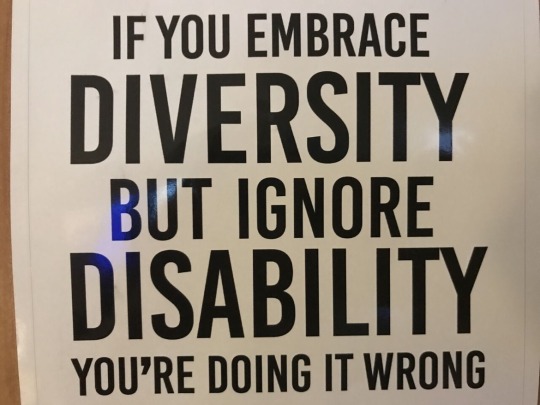
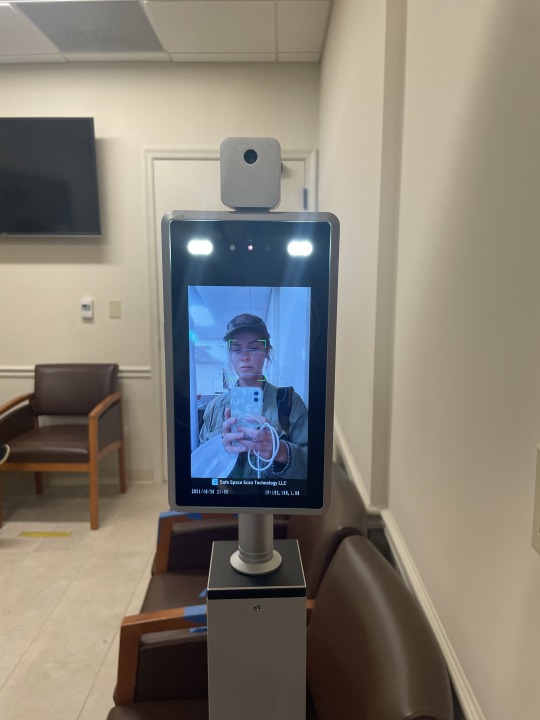

ɪɴ ᴛʜɪꜱ ᴀᴜᴅɪᴏ, ɪ ᴡᴀꜱ ꜰᴏʀ��ᴇᴅ ᴛᴏ ɢᴏ ꜰᴏʀ ᴀ ʀᴀɴᴅᴏᴍ ᴅʀᴜɢ ᴛᴇꜱᴛɪɴɢ, ᴅɪꜱʀᴜᴘᴛɪɴɢ ᴍʏ ᴅᴀʏ ᴀɴᴅ ʟɪꜰᴇ, ᴏɴʟʏ ᴛᴏ ʜᴀᴠᴇ ᴏꜰꜰɪᴄᴇʀ ʜᴜʀᴅ ɪɴ ɴᴏʀꜰᴏʟᴋ, ᴠᴀ ᴛᴇʟʟ ᴍᴇ ᴛᴏ "ꜱᴜᴄᴋ ʜᴀʀᴅᴇʀ, ʙʟᴏᴡ ʜᴀʀᴅᴇʀ" ᴛʜʀᴇᴇ ᴛɪᴍᴇꜱ, ᴄᴀᴜꜱɪɴɢ ᴀ ᴍᴇɴᴛᴀʟ ʜᴇᴀʟᴛʜ ᴄᴏʟʟᴀᴘꜱᴇ ᴛʜᴀᴛ ᴅᴀʏ ᴋɴᴏᴡɪɴɢ ʜᴏᴡ ᴍᴜᴄʜ ᴛɪᴍᴇ ɪ'ᴠᴇ ꜱᴘᴇɴᴛ ɪɴ ᴛʜᴇ ʟᴀꜱᴛ ʀᴇᴍᴀɪɴɪɴɢ ʏᴇᴀʀꜱ ᴏꜰ ᴍʏ ʏᴏᴜᴛʜ ᴀɴᴅ ʟᴀᴛᴇ 20ꜱ.
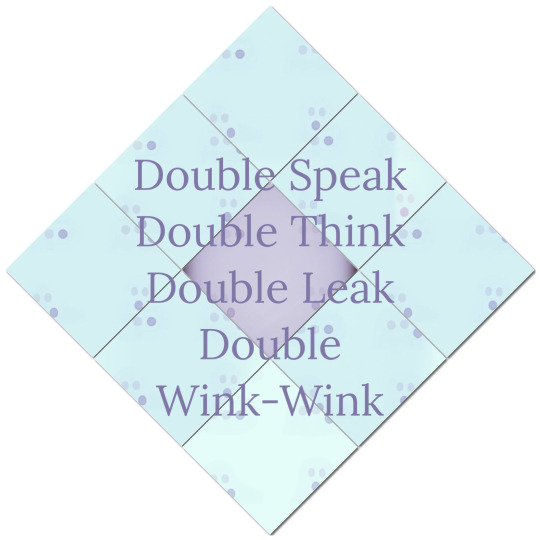
ᴀʟʟ ꜰᴏʀ ᴛʜᴇ ᴍᴇʀᴇ ᴀᴄᴛ ᴏꜰ ᴏᴡɴɪɴɢ ᴀ ɢᴜɴ, ᴀ ᴡᴏᴍᴀɴ ᴡɪᴛʜ ᴀ ᴘᴀꜱᴛ ʜɪꜱᴛᴏʀʏ ᴏꜰ ᴀɴ ᴇᴀᴛɪɴɢ ᴅɪꜱᴏʀᴅᴇʀ, ᴏᴡɴɪɴɢ ᴀ ᴡᴇᴀᴘᴏɴ ɪꜱ ꜱᴇᴇɴ ᴀꜱ ɪʟʟᴇɢᴀʟ ɪɴ ᴛʜᴇ ᴇʏᴇꜱ ᴏꜰ ᴛʜᴇ ʟᴀᴡ.
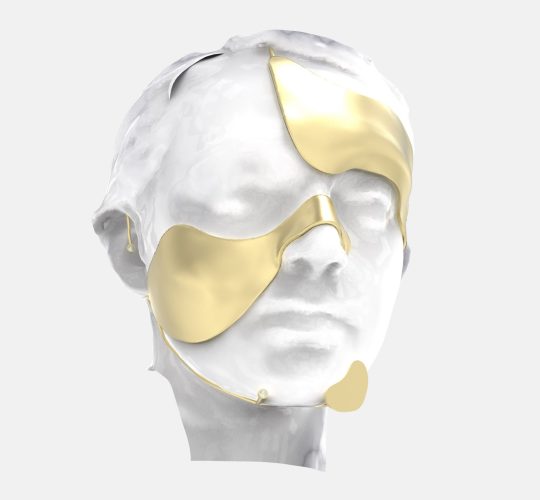

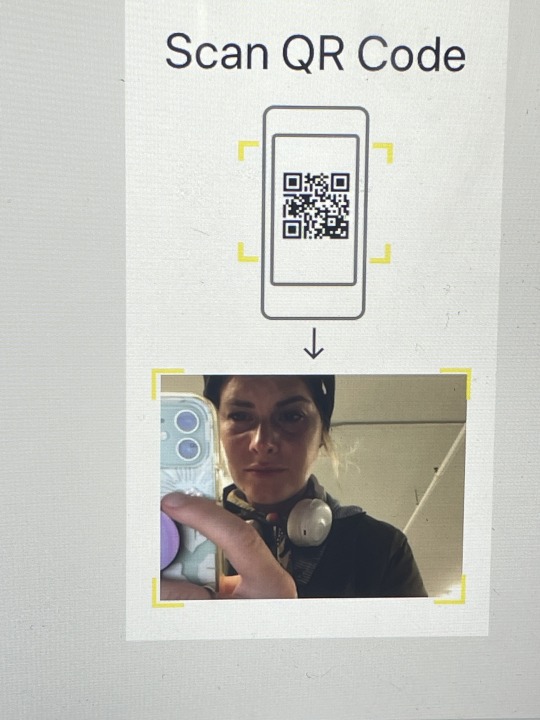
ᴡᴇ ʟɪᴠᴇ ɪɴ ᴀʀᴄʜᴀɪᴄ ᴛɪᴍᴇꜱ, ᴛɪᴍᴇꜱ ᴡʜᴇʀᴇ ᴍᴇɴᴛᴀʟ ʜᴇᴀʟᴛʜ ɪꜱ ᴜꜱᴇᴅ ᴀꜱ ᴀ ᴡᴀʏ ᴛᴏ ᴅᴇɴɪɢʀᴀᴛᴇ ʏᴏᴜʀ ᴘᴇʀꜱᴏɴʜᴏᴏᴅ ᴀɴᴅ ᴛʀᴇᴀᴛ ʏᴏᴜ ᴀꜱ ᴛʜᴏᴜɢʜ ʏᴏᴜ ᴅᴏ ɴᴏᴛ ᴇxɪꜱᴛ ᴀɴᴅ ᴀʀᴇ ɴᴏᴛ ᴡᴏʀᴛʜʏ ᴏꜰ ᴘᴀʀᴛɪᴄɪᴘᴀᴛɪɴɢ ɪɴ ᴀɴ ᴇᴄᴏɴᴏᴍʏ ʏᴏᴜ ʜᴇʟᴘᴇᴅ ʙᴏᴏꜱᴛ.

2 notes
·
View notes
Text
Oregon has decriminalized all drugs based on possession.
Oregon Just Decriminalized All Drugs – Here's Why Voters Passed This Groundbreaking … https://www.usnews.com/news/best-states/articles/2020-12-10/oregon-just-decriminalized-all-drugs-heres-why-voters-passed-this-groundbreaking-reform
2 notes
·
View notes